Medieval America
Medieval
America
FEUDALISM
AND LIBERALISM IN
NINETEENTH-CENTURY
U.S. CULTURE
Robert Yusef Rabiee
The University of Georgia Press
Athens
2020 by the University of Georgia Press
Athens, Georgia 30602
www.ugapress.org
All rights reserved
Designed by Melissa Bugbee Buchanan
Set in Garamond Premier Pro
Most University of Georgia Press titles are
available from popular e-book vendors.
Printed digitally
Library of Congress Cataloging-in-Publication Data
Names: Rabiee, Robert Yusef, 1981author.
Title: Medieval America : feudalism and liberalism in
nineteenth-century U.S. culture / Robert Yusef Rabiee.
Other titles: Feudalism and liberalism in nineteenth-century U.S. culture
Description: Athens, Georgia : The University of Georgia Press, [2020] |
Includes bibliographical references and index.
Identifiers: LCCN 2020032135 | ISBN 9780820358369 (hardback) | ISBN 9780820358376 (ebook)
Subjects: LCSH: United StatesCivilization19th century. | Literature and historyUnited StatesHistory19th century. | MedievalismUnited StatesHistory19th century. | Feudal lawMiscellanea. | Liberalism United StatesHistory19th century. | United StatesHistoriography.
Classification: LCC E169.1 .R235 2020 | DDC 973.5dc23
LC record available at https://lccn.loc.gov/2020032135
I started in Old World
Have come now to New.
But all my actions, behaviors,
Theyve come with me, too.
Bonnie Prince Billy,
So Far and Here We Are (2014)

CONTENTS

INTRODUCTION
Feudalism and Liberalism in the U.S. Imaginary
CHAPTER ONE
Plantation Romance and Southern Medievalism in Poes Magazine Fiction
CHAPTER TWO
Melodrama of Primitive Accumulation: Coopers Feudal Claims
CHAPTER THREE
Marriage, Chivalry, and Feudal Law: Harriet Jacobs and E. D. E. N. Southworth
CHAPTER FOUR
Resistance to the Feudal-Liberal Alliance: Ridges The Life and Adventures of Joaqun Murieta and Melvilles Benito Cereno
CHAPTER FIVE
Feudalism, Individualism, and Authority in Emersons Later Works
CONCLUSION
The Kentucky Castle

ACKNOWLEDGMENTS

T hank you to my dissertation committee at the University of Southern California: John Carlos Rowe, Bill Handley, David Rollo, and William Deverell. Michelle Yvonne Gordon, who helped walk this project through its infancy before she departed USC, remained in the back of my mind throughout the writing process.
Thanks also to David Dowling at the Emerson Society; Alan Nadel of the University of Kentucky and Futures of American Studies; Chris Castiglia and Dana D. Nelson at J19; and Johanna Heloise Abtahi, Laura Dassow Walls, and Denise G. Stripes at ESQ. And, of course, and endlessly, thanks to Walter Biggins at University of Georgia Press.
Thank you to Will Oldham and Brett Sova at Drag City Records for use of lyrics from So Far (And Here We Are) by Bonnie Prince Billy as the epigraph to this book.
My colleagues Stephen G. Pasqualina and Alex T. Young have, between them, read and commented on almost every word in this manuscript. Thank you also to Jessica Mummert, who read and offered comments during the final stages of revision. Svetlana Zill provided helpful feedback on the introduction and conclusion to this text.
My parents, Lydia Jane McNamara-Rabiee and Massoud Rabiee, made all of this possible, financially and personally. They fostered a love of learning, helped guide me through choppy waters, and insisted that the study of language, history, and ideas was worth pursuing.
Finally, to Melissa Leigh Scott-Rabiee: on long hikes and road trips, from Lexington to Los Angeles to Philadelphia, in long discussions on labor and society, and in quiet moments spent listening to music or just hanging around, you have kept me alive and awake to the world. Without your supportand without our dreaming about the kind of world we want for our childI couldnt and wouldnt have done this.
Medieval America

INTRODUCTION

Feudalism and Liberalism in the U.S. Imaginary
The immigrants settling in America at the start of the seventeenth century somehow unlocked the democratic from all those other principles it had to contend with in the old communities of Europe and they transplanted that alone to the New World, where it has been able to grow freely and develop its legislation peacefully by moving in harmony with the countrys customs.
Alexis de Tocqueville, Democracy in America (18351840)
Whilst in ordinary life every shopkeeper is very well able to distinguish between what somebody professes to be and what he really is, our historians have not yet won even this trivial insight. They take every epoch at its word and believe that everything it says and imagines about itself is true.
Karl Marx and Friedrich Engels, The German Ideology (1846)
Of the many myths that have supported U.S. exceptionalism, the most persistent may be that the United States lacks a feudal tradition. Alexis de Tocqueville states the claim plainly in the passage quoted above. While recognizing the persistence of ideas and ways of living transplanted from the Old World to the New, he argues that Anglo-American economic, juridical, and governmental structures freed themselves of the feudal baggage that other European powers dragged behind them like atrophied tails. An earlier French observer, Hector St. John de Crvecouer, came to similar conclusions in his Letters from an American Farmer (1782): Strangers to the honours of monarchy, Americans do not aspire to purchase founding titles, and frivolous names. Out with the old fineries, in with rugged republican virtue: this, for Tocqueville, Crvecouer, and many today, was the moral of the founding of the United States.
Tocqueville and Crvecouer are not incorrect in their observations. The antifeudal project exercised a profound impact on U.S. political and cultural development. Thomas Jefferson aimed to dismantle feudal remnants when, in 1776, he proposed to eradicate primogeniture and entail in Virginia as the But Jeffersons desire to eradicate feudal privilege in the colonies somewhat troubles Tocquevilles enthusiastic belief that Anglo-Americans brought only the democratic form with them from Europe. If the feudal element hadnt been transported to the Americas, then Jefferson would have had no need to dismantle it. However, both authors would certainly agree that the revolution and subsequent legislation had the power to remove feudalism as a determining factor in U.S. life.
Tocquevilles, Crvecouers, and Jeffersons statements share an assumption about the new nations relationship to history. Like the iconoclasts in Nathaniel Hawthornes Earths Holocaust (1844), the United States would burn all the rubbish of the Heralds Office; the blazonry of coat-armor; the crests and devices of illustrious families; pedigrees that extended back, like lines of light, into the mist of the dark ages, not to mention the patents of nobility of German counts and barons, Spanish grandees, and English peers, from the worm-eaten instruments signed by William the Conqueror, down to the bran-new parchment of the latest lord.
Medieval America questions this narrative, arguing that feudal law and medieval literature were structural components of the U.S. cultural imaginary in the nineteenth century. The racial, gender, and class formations that emerged in the first era of U.S. nation building were indebted to medieval thought an observation that challenges the liberal consensus model and allows us to better grasp how social roles developed. Far from casting off feudal tradition, the early United States folded feudalism into its emerging liberal order, creating a knotted system of values and practices that continue to structure the U.S. experience. Sometimes, the feudal residuum contradicted the United States liberal values. Other times, the feudal residuum bolstered those values, revealing deep sympathies between so-called modern and premodern political thought.
Next page

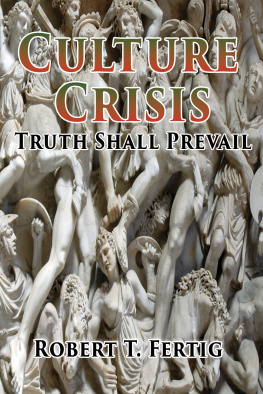
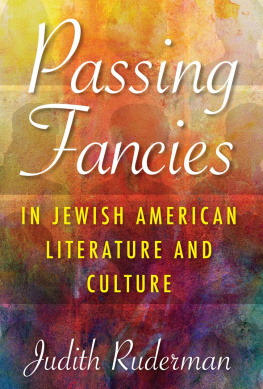
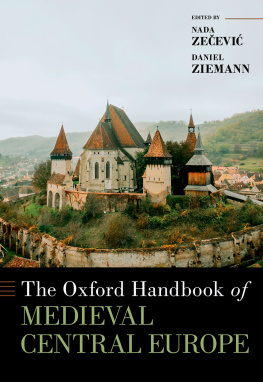
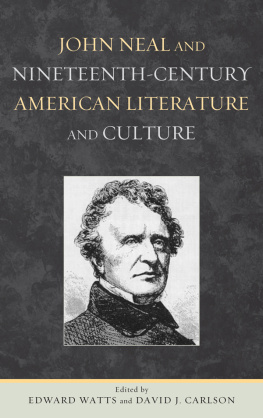
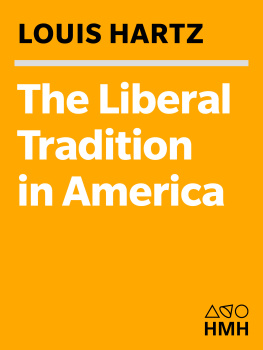
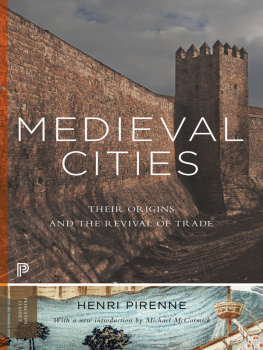
 CONTENTS
CONTENTS 